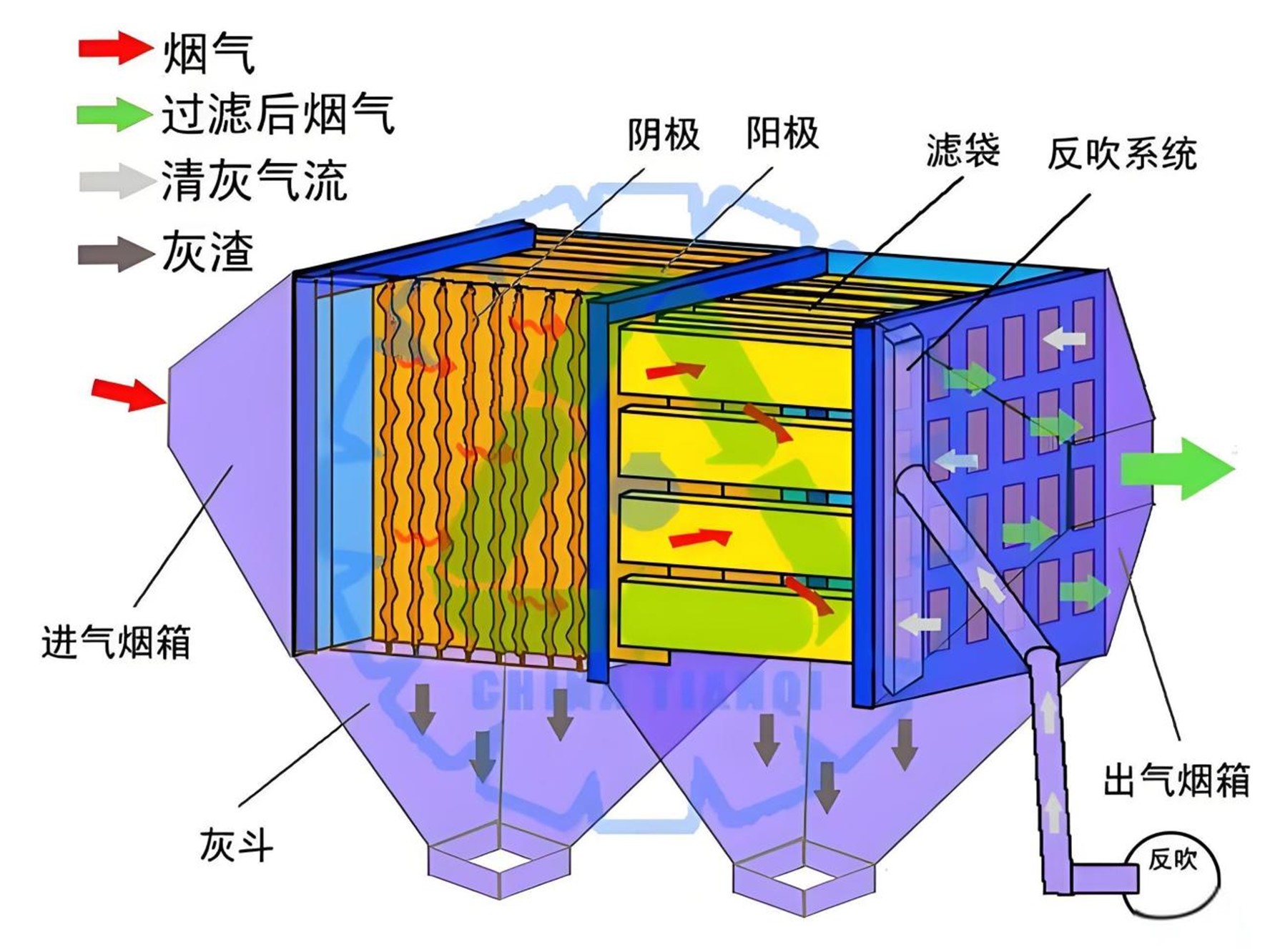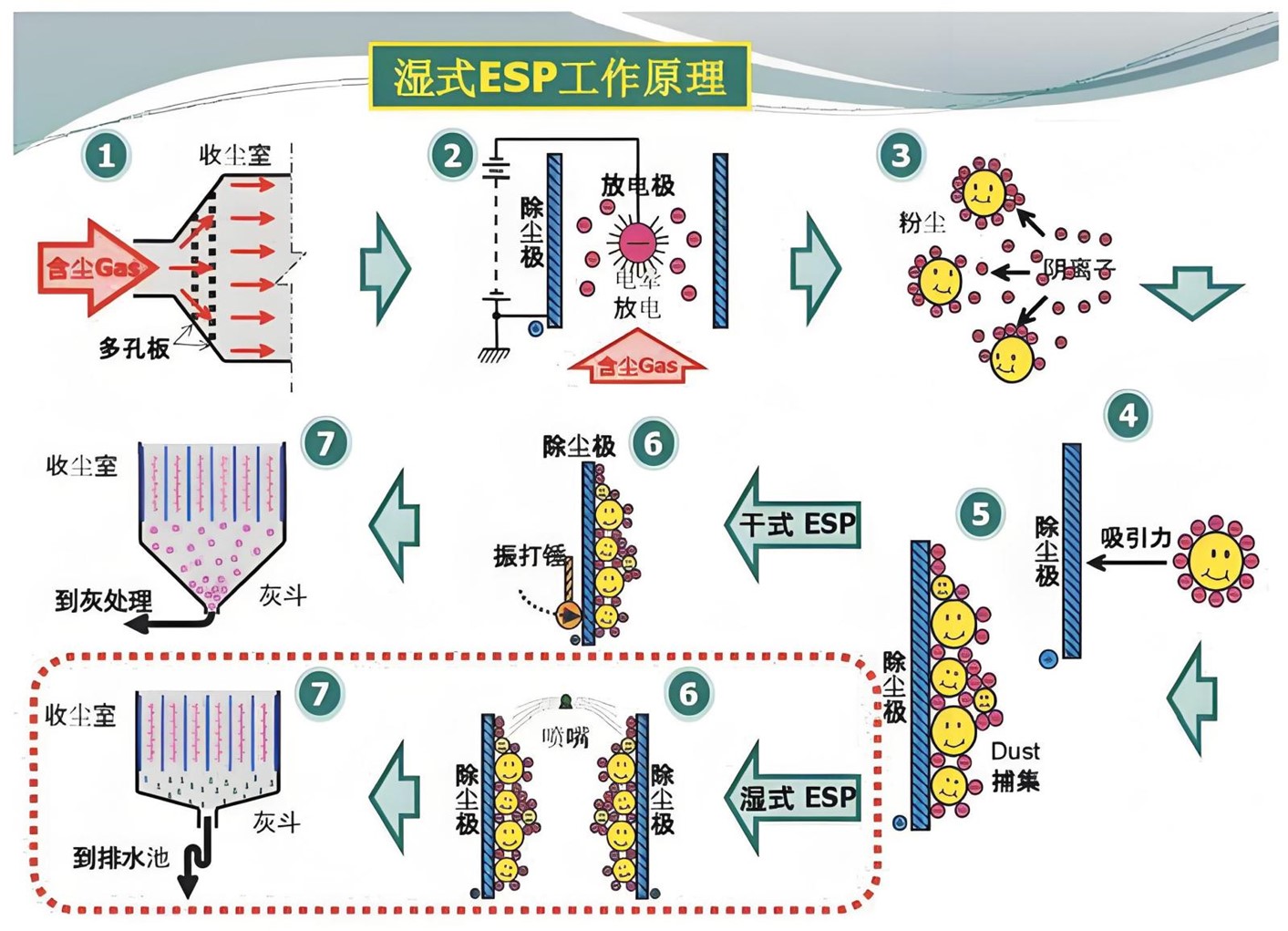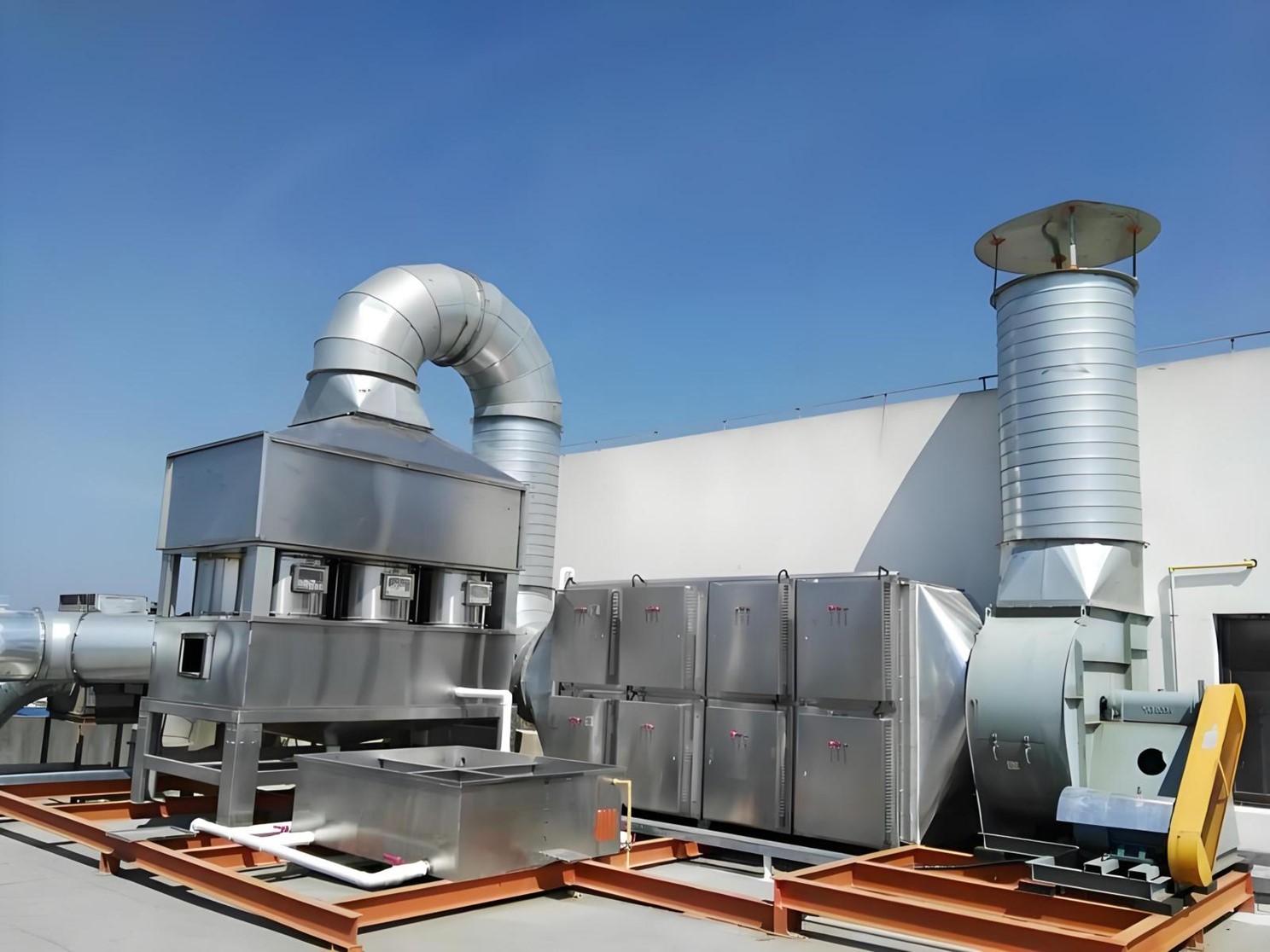1、Operating principle
The key principle of the wet electrostatic precipitator (wet electrostatic precipitator) treatment project is to
remove the particles in the exhaust gas by the synergistic effect of electrostatic and water spray.
In particular, its working principle includes the following aspects:
1-1. High-voltage electrostatic field generation
In the dust collector between the two poles to apply high-voltage DC electricity,the formation of
a strong electrostatic field.
When dusty air flows through the electric field, the particles in it will be charged by ionization.
1-2. Charged particles
Charged particles move toward the electrode under the action of an electric field,and the surface of the
particles absorbs a thin film of water or solvent due to the action of water vapor or other solvents
in the air stream,the electrical conductivity and the collection efficiency are further enhanced.
1-3. Collecting and cleaning
Charged particles are drawn to the collector's collecting pole (usually anode or cathode) to form a
continuous layer of dust.
When the dust layer accumulates to a certain thickness,it can be cleaned by vibrating and washing,
and the collected particles and waste liquid can be further treated or recycled.

2、The process flow
The technological process of wet electrostatic precipitator
treatment project generally includes the following steps:
2-1. Pretreatment
To pre-treat the waste gas entering the dust collector,such as cooling, dehumidification, conditioning, etc. ,
in order to improve the physical properties and chemical property of the waste gas and improve the
subsequent treatment effect.
2-2. Gas enters the electric field
The pre-treated waste gas enters the electric field area of the wet electrostatic precipitator.
Under the action of the high voltage electrostatic field,the particles are charged and move
towards the collecting pole.
2-3. Collection and purification
Charged particles form a dust layer on the collecting pole and are collected.
At the same time,the spray system sprays water or solvent droplets into the electric field,which collides
and condenses with charged particles,further improving the collection efficiency.
The purified gas is discharged from the top of the dust collector.
2-4. Cleaning and discharge
Regular cleaning of dust collection pole,the collection of particulate matter and waste
liquid discharge system.
Emissions of gases to meet environmental requirements of the standard.

3、Engineering cases
【Solution of wet electrostatic precipitator treatment project in a Guangdong iron and steel plant】
3-1 Project background
The Iron and steel plant produces a lot of waste gas containing high concentration of particulate matter
in the production process,which causes serious pollution to the environment.
In response to the national environmental policy,enterprises decided to invest in the construction of wet
electrostatic precipitator treatment projects to improve the quality of emissions.

3-2 Project Implementation:
Pre-research and Design
To conduct a comprehensive investigation of iron and steel plant emissions,exhaust gas composition,
concentration and emission parameters.
According to the investigation results,a set of wet electrostatic precipitator treatment scheme is designed.
Equipment selection and procurement
According to the design, choose a stable performance,high efficiency of wet electrostatic precipitator and
its supporting equipment.
At the same time, considering the reliability and economy of the equipment operation,the supplier is screened
and evaluated strictly.
Engineering construction and installation
According to the construction drawings and specifications for construction and installation work.
In the construction process, strictly control the construction quality and progress,to ensure the successful
completion of all engineering tasks.
Debugging and running
After the installation of the equipment,
the system debugging and commissioning work.
By adjusting the process parameters and optimizing the operation conditions,the normal operation
and high efficiency treatment effect of wet electrostatic precipitator are ensured.
Project result
After the implementation of the wet electrostatic precipitator treatment project,the concentration
of particulate matter in the waste gas of the steel plant has been significantly reduced,which meets
the requirements of the national environmental protection standards.
At the same time, the temperature and humidity of the exhaust gas have been effectively controlled,creating
favorable conditions for the subsequent treatment process.
The successful implementation of the project has not only enhanced the environmental image of the enterprise,
but also laid a solid foundation for the sustainable development of the enterprise.